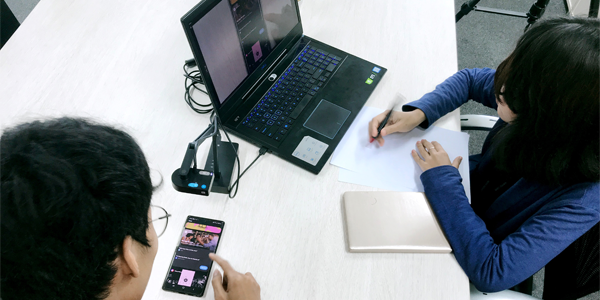
It can be expensive to research new products, but only if you fail to follow the right techniques. You can choose between numerous cost-effective and simple methods to perform product development research. Conducting this research is highly beneficial and saves you thousands.
You can consider these deliverables while performing user research to develop a new product:
- The first potential thing that you should consider while targeting your users is user personas
- You can collect user and data information from user surveys and contextual inquiries
- Generating a definition or value proposition of the product
Sign up for our FREE trial that includes 5 user testing videos with full features!
Elements for user testing your products
Below, we will learn about the methods to perform useful and budget-friendly user testing for new products:
1. Design a prototype
A prototype is an initial model that you should prepare before working on the original product. You can use numerous methods to create a prototype. For instance, drawing sketches of the product, taking pictures of the existing product that you want to re-make, and then combining the ideas.
Once you design a successful prototype model, you can replicate the same project to create the final product.
2. Create a testing plan
When you create a testing plan for your new product, you need to find solutions for various problems. For instance:
- Why would people choose your product instead of the competitor?
- What would be the features and functionalities of your product?
- How will you measure the success rate?
- What would be your goal for making the product?
3. Recruit target users
Recruiting users is a fun and easy task. You can ask friends and run social media campaigns to generate feedback from the users. This will help if you are working on a product that already exists. This way, you can seek reviews from the actual users. To make your task more comfortable, you need to know potential users and their expectations.
4. Select a testing location
When testing a product, you need to consider where your team can gather around and discuss the ideal product. You need a place with fewer distractions and more opportunities. Cafes can also work when it comes to a meeting place for user testing. You and your team will have a great environment with light music playing in the background, and the smell of coffee will keep everyone active.
5. Perform the test
When you finally test your product, it’s important to consider the quality. If this is your first time testing a product, you should run it through your family members and friends. They will provide an honest opinion and give some direction as to what it lacks.
6. Document the results
After you test the product, you need to summarize your findings and evaluate problems for solutions. After documenting your results, you can work on individual issues and make suitable decisions.
User testing with Trymata
With only some bias, Trymata is user testing and much more. The hallmark of good user testing is the user’s view – their opinion, both written and verbal, will offer you the actionable data you need most. Trymata’s usability testing suite is the “ah ha!” generating platform built for teams of all sizes and scope.
Unlike our competitors, Trymata is flexible, affordable, and comes with the quantitative metrics others in the UX industry just don’t offer. From our simple and intuitive dashboard to the indexing and collaborative aspects of the narrated videos, Trymata is the one-stop shop for all things digital.
Read about our impression testing and see how much insight you could be getting on your digital products, designs, or marketing materials!
Sign up for our FREE trial that includes 5 user testing videos with full features!
Conclusion
The prototype is only a rough idea about the final product, so do not take a lot of time on this step. If you follow the above user testing process for a new product, you avoid making mistakes and increase the final product’s efficiency.





